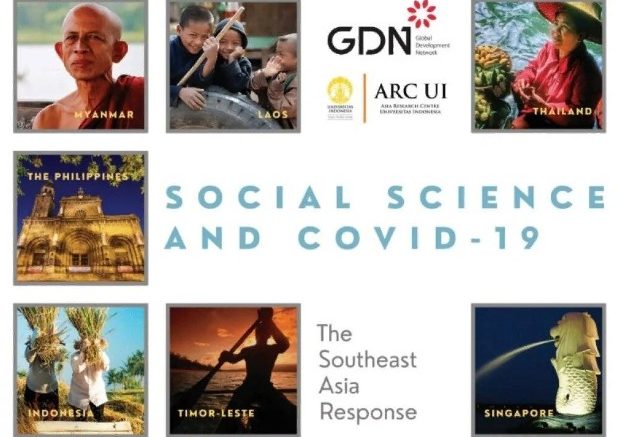Policymakers should work more closely with social scientists to gain a better understanding of the socioeconomic, cultural, and political settings that underpin the behaviors we need to modify in response to global crises.
In Southern and Southeast Asia, opportunities to include social scientists in national COVID-19 response strategies were lost, according to a regional evaluation.
The Global Development Network and the Asia Research Centre at Universitas Indonesia collaborated on the report, “The Role of Social Sciences in COVID-19 Responses in Asia,” with support from the International Development Research Centre of Canada.
“Understanding the settings of how the epidemic is spreading has not assisted COVID-19 control strategies in Asia,” says Inaya Rakhmani, director of Universitas Indonesia’s Asia Research Centre.
“Individuals have been chastised for failing to change their behaviors without understanding why they are hesitant to do so. Insights into human behavior can be gained through social science study.”
A group of academics looked at how social science was used as part of national COVID-19 response strategies in 11 Asian nations.
They performed literature studies and interviews with a variety of stakeholders to find out how social scientists are involved in decision-making, how pandemic-related social science research is supported, and to assess current and emerging efforts headed by social scientists in the region.
Governments frequently approached the pandemic as a medical and security concern, ignoring its socio-cultural components, according to the study. Many national pandemic commissions were dominated by bureaucratic and sometimes military individuals, with scientist participation limited to medicine and macroeconomics.
The involvement of social scientists, on the other hand, was minor, limited to the management of big datasets and statistical data, and mostly at the lower administrative levels.
“Opportunities to build effective, context-specific COVID-19 response plans were squandered,” says Francesco Obino, the Global Development Network’s head of programs.
“Countries frequently imitated one another, for example, by enacting lockdowns, without adequately considering the consequences for various groups in their society, such as women, kids, daily wagers, migrants, and individuals with disabilities. COVID-19 taskforces only slightly mobilized the knowledge and capacities needed to understand such implications.”
“Some of the social components of health are not being recognized by policymakers in Asia,” says cultural anthropologist Rosalia Sciortino of Thailand’s Mahidol University.
“Social science studies, for example, can disclose the socioeconomic and cultural conditions that influence compliance with mask-wearing and social distancing measures, as well as vaccine views. We can create more successful context-specific solutions if we understand the contexts.”
Despite the lack of a link to policymakers, Asia’s social scientists were able to stoke public debate by sharing their findings through the media. These debates have influenced government decision-making in the past.
In countries like Malaysia, the Philippines, and Thailand, social scientists collaborated with non-governmental organizations to use their studies to enhance job availability during the pandemic. Despite a relative paucity of national investment in social science research related to the epidemic, the discipline benefited from corporate and foreign financing.
“Social scientists must dismantle the hurdles that prevent a more integrated response to multi-dimensional catastrophes like the COVID-19 epidemic and climate change,” Sciortino argues. “We need to make our work more visible so that social sciences can fully contribute to altering our shared future in a more sustainable and just way.”





